- Home
- Jack Higgins
A Fine Night for Dying Page 2
A Fine Night for Dying Read online
Page 2
The gray walls moved in, hiding them from sight, and the door to the companionway banged open and Rossiter appeared with the passenger. He was a black man of middle years, tall and handsome, and he wore a heavy overcoat with a fur collar. He looked around in bewilderment and Rossiter spoke to him in English. The man nodded and moved forward to the rail, and Rossiter pulled out an automatic and struck him a heavy blow at the base of the skull. The man lurched to one side and fell to the deck without a cry.
What happened next was like something out of a nightmare. The Englishman moved with incredible speed and energy. He grabbed a heavy chain from the stern deck and wound it around the man’s body several times. He gave it a final turn about the neck and hooked the two loose ends together with a spring link.
He turned and shouted to Mercier above the roaring of the engine, “Okay, grab his feet and over with him.”
Mercier stood there as if turned to stone. Without hesitation, Rossiter dropped to one knee and heaved the man into a sitting position. The man raised his head painfully, the eyelids flickered, then opened. He glared at Mercier, not in supplication, but in hate; his lips parted and he cried out in English. Rossiter stooped and had him across the shoulders. The Englishman straightened and the man went over the rail, headfirst into the sea, and disappeared instantly.
Rossiter turned and struck Mercier heavily in the face, sending him sprawling to the deck. “Now pick yourself up and get to work on those nets or I’ll send you after him.”
He went into the wheelhouse. Mercier lay there for a moment, then got to his feet and stumbled along to the stern. It couldn’t have happened. Oh, God, but it couldn’t have happened. The deck slanted suddenly as Jacaud spun the wheel again, and Mercier fell on his face in the pile of stinking nets and started to be sick.
IT was the fog that saved them, spreading out halfway across the Channel, shrouding them from view on the run back to the French coast.
In the wheelhouse, Jacaud swallowed rum from a bottle and chuckled harshly. “We’ve lost them.”
“Your luck is good,” Rossiter said. “You must live right.”
“Pity about the package.”
“That’s life.” Rossiter seemed completely unconcerned and nodded to where Mercier crouched by the nets, head in hands. “What about him?”
“A worm,” Jacaud said. “No backbone. Maybe he should go for a swim, too.”
“And what would you tell them in Saint Denise?” Rossiter shook his head. “Leave it to me.”
He went along the deck and stood over Mercier with the rum bottle. “You’d better have a drink.”
Mercier raised his head slowly. His skin was like the belly of a fish, the eyes full of pain. “He was still alive, monsieur. Still alive when you put him into the water.”
Rossiter’s pale flaxen hair glinted in the early morning sun, making him look strangely ageless. He stared down at Mercier, his gentle, aesthetic face full of concern. He sighed heavily, crouched and produced an exquisite Madonna from one of his pockets. It was perhaps eight inches long and obviously extremely old, carved by some master in ivory, the color of his hair chased with silver. When he pressed her feet with his thumb, six inches of blue steel appeared as if by magic, sharp as a razor on both edges, honed with loving care.
Rossiter kissed the Madonna reverently, and without even a trace of mockery, then stroked the blade against his right cheek.
“You have a wife, Mercier,” he said gently, and his face never lost its peculiarly saintly expression for a moment. “An invalid, I understand?”
“Monsieur?” Mercier said in a whisper, and the heart seemed to stop inside him.
“One word, Mercier, the slightest whisper and I cut her throat. You follow me?”
Mercier turned away, stomach heaving and started to be sick again. Rossiter stood up and walked along the deck and stood in the entrance of the wheelhouse.
“All right?” Jacaud demanded.
“Naturally.” Rossiter took a deep breath of fresh salt air and smiled. “A fine morning, Jacaud, a beautiful morning. And to think one could still be in bed and missing all this.”
Chapter 2
Fog rolled in across the city, and somewhere in the distance ships hooted mournfully to each other as they negotiated the lower reaches of the Thames on the way out to sea. Fog—real fog of the kind that you seemed to get in London and nowhere else on earth. Fog that killed off the aged, choked the streets and reduced one of the world’s great cities to chaos and confusion.
Paul Chavasse abandoned his taxi at Marble Arch and whistled softly to himself as he turned up the collar of his trench coat and passed through the gates of the park. Personally there was only one thing he liked better than fog and that was rain. An idiosyncrasy with its roots somewhere in youth, he supposed, or perhaps there was a simpler explanation. After all, both rain and fog enclosed one in a small private world, which could be very convenient at times.
He paused to light a cigarette, a tall, handsome man with a face as Gallic as the Pigalle on a Saturday night, and the heritage of his Breton father was plain to see in the Celtic cheekbones. A park keeper drifted out of the shadows and faded without a word, a thing that, considering the circumstances, could only have happened in England. Chavasse went on his way, unaccountably cheered.
St. Bede’s Hospital was on the far side of the park, a Victorian Gothic monstrosity in spite of its worldwide reputation. They were expecting him, and when he called at reception, a porter in a neat blue uniform escorted him along a series of green-tiled corridors, each one of which seemed to stretch into infinity.
He was handed over to a senior lab technician in a small glass office, who took him down to the mortuary in a surprisingly modern lift. Chavasse was conscious of two things the moment the lift doors opened: the all-pervading smell of antiseptic so peculiar to hospitals and the extreme cold. The vast echoing chamber was lined with steel drawers, each one presumably holding a cadaver, but the object of his visit waited for him on an operating trolley covered with a rubber sheet.
“We couldn’t get him into one of the boxes, worse luck,” the technician explained. “Too bloated. Stinking like last year’s fish and then some.”
At close quarters, the smell was quite overpowering, in spite of the preventive measures that had obviously been taken. Chavasse pulled out a handkerchief and held it to his mouth. “I see what you mean.”
He had looked on death many times in most of its variations, but this monstrosity was something new. He stared down, a slight frown on his face.
“How long was he in the water?”
“Six or seven weeks.”
“Can you be certain of that?”
“Oh, yes—urine tests, the rate of chemical breakdown and so on. He was Jamaican, by the way, or did you know that?”
“So they told me, but I’d never have guessed.”
The technician nodded. “Prolonged immersion in salt water does funny things to skin pigmentation.”
“So it would appear.” Chavasse stepped back and replaced the handkerchief in his breast pocket. “Thanks very much. I think I’ve seen all I need.”
“All right for us to dispose of him now, sir?” the technician inquired as he replaced the sheet.
“I was forgetting.” Chavasse took out his wallet and produced a printed disposal slip. “Cremation only, and all documents to the Home Office by tomorrow.”
“They’d been hoping to have him in the medical school for dissection.”
“Tell them to try Burke and Hare.” Chavasse pulled on his gloves. “Ashes to ashes for this boy, and no funny business. I’ll see myself out.”
When he had gone, the technician lit a cigarette, a slight frown on his face. He wondered about Chavasse. There was a foreign look about him, but he was obviously English. A nice enough bloke—a gentleman, to use an old-fashioned word, but something wasn’t quite right. It was the eyes, that was it. Black and completely expressionless. They seemed to look right through you and b
eyond, as if you weren’t there at all. The kind of eyes that Jap colonel had had, the one in the camp in Siam where the technician had spent the worst three years of his life. A funny bloke, that Jap. One minute full of the milk of human kindness, the next smoking a cigarette without turning a hair, while they flogged some offender to death.
The technician shuddered and opened the slip of paper that Chavasse had given him. It was signed by the Home Secretary himself. That did it. He carefully stowed it away in his wallet and pushed the trolley through into the crematorium next door. Exactly three minutes later, he closed the glass door of one of the three special ovens and reached for the switch. Flames appeared as if by magic, and the body, bloated with its own gases, started to burn at once.
The technician lit another cigarette. Professor Henson wouldn’t be too pleased, but it was done now, and after all he did have it in writing. He went next door, whistling cheerfully, and made a cup of tea.
IT was almost two months since Chavasse had visited the house in St. John’s Wood, and returning was like coming home again after a long absence. Not so strange, perhaps, when one considered the kind of life he had led for the twelve years he had been an agent of the Bureau, the little-known section of British Intelligence that handled the sort of business no one else seemed to know what to do with.
He went up the steps and pressed the bell beside the brass plate that carried the legend BROWN & CO—IMPORTERS & EXPORTERS. The door was opened almost immediately by a tall graying man in a blue serge uniform, who positively beamed a welcome.
“Good to have you back, Mr. Chavasse. You’re nice and brown.”
“Glad to be back, George.”
“Mr. Mallory’s been asking for you, sir. Miss Frazer’s been phoning down every few minutes.”
“Nothing new in that, George.”
Chavasse went up the curving Regency staircase quickly. Nothing changed. Not a thing. It was just like it had always been. Lengthy periods in which damn-all happened, and then something broke through to the surface, and the day needed twenty-seven hours.
When he went into the small outer office at the end of the narrow corridor, Jean Frazer was seated at her desk. She glanced up and removed her heavy library spectacles with a smile that was always a shade warmer for Chavasse than anyone else.
“Paul, you’re looking fine. It’s wonderful to see you again.”
She came round the desk, a small hippy woman of thirty or so, but attractive enough in her own way. Chavasse took her hands and kissed her on the cheek.
“I never did get around to giving you that evening out at the Saddle Room. It’s been on my conscience.”
“Oh, I’m sure it has.” There was a look of skepticism on her face. “You got my message?”
“My flight was delayed, but the messenger was waiting when I got to the flat. I didn’t even have time to unpack. I’ve been to St. Bede’s and had a look at the corpus delicti or whatever they call it. Most unpleasant. He’d been in the sea rather a long time. Bleached a whiter shade of pale, by the way, which seemed extraordinary considering what you told me about him.”
“Spare me the details.” She flicked the intercom. “Paul Chavasse is here, Mr. Mallory.”
“Send him in.”
The voice was remote and dry and might have been from another world—a world that Chavasse had almost forgotten during his two months’ convalescence. A tiny flicker of excitement moved coldly in his stomach as he opened the door and went in.
MALLORY hadn’t changed in the slightest. The same gray flannel suit from the same very eminent tailor; the same tie from the right school; not an iron-gray hair out of place; the same frosty, remote glance over the top of the spectacles. He couldn’t even manage a smile.
“Hello, Paul, nice to see you,” he said, as if he didn’t mean a word of it. “How’s the leg?”
“Fine now, sir.”
“No permanent effects?”
“It aches a little in damp weather but they tell me that will wear off after a while.”
“You’re lucky you’ve still got two legs to walk around on. Magnum bullets can be nasty things. How was Alderney?”
Chavasse’s English mother lived in retirement on that most delightful of all the Channel Islands, and he had spent his convalescence in her capable hands. It occurred to him, with a sense of wonder, that on the previous day at this time he had been picnicking on the white sands of Telegraph Bay; cold chicken and salad and a bottle of liebfraumilch frosted from the fridge and wrapped in a damp towel, strictly against the rules, but the only way to drink it.
He sighed. “Nice, sir. Very nice.”
Mallory got straight down to business. “You’ve seen the body at St. Bede’s?”
Chavasse nodded. “Any idea who he was?”
Mallory reached for a file and opened it. “A West Indian named Harvey Preston from Jamaica.”
“And how did you manage to find that out?”
“His fingerprints were on record.”
Chavasse shrugged. “His fingers were swollen like bananas when I saw him.”
“Oh, the lab boys have a technique for dealing with that sort of problem. They take a section of skin and shrink it to normal size with the use of chemicals. They arrive at a reasonable facsimile.”
“Somebody went to a lot of trouble over the body of an unknown man washed up after six weeks. Why?”
“In the first place, it didn’t happen in quite that way. He was brought up off the bottom in the trawl net of a fishing boat out of Brixham, with about seventy pounds of chain wrapped around him.”
“Murdered, presumably?”
“Death by drowning.”
“A nasty way to go.”
Mallory passed a photo across. “That’s him, taken at his trial at the Bailey in 1967.”
“What was he up for?”
“Robbing a gambling club in Birmingham. The Crown lost, by the way. He was acquitted for lack of evidence. Witnesses failed to come forward, and so on. The usual story.”
“He must have had a lot of pull.”
Mallory helped himself to one of his Turkish cigarettes and leaned back in his seat. “Harvey Preston arrived in England in 1938 when he was twenty and joined the Royal Army Service Corps during the Munich crisis. His mother and father followed a few months later with his younger sister, and Preston fixed them up with a small house in Brixton. He was stationed at Aldershot with a transport regiment as a truck driver. His mother gave birth to another son, who they named Darcy, on the third day of the war in September 1939. A week later, Harvey’s regiment was posted to France. During the big retreat, when the panzers broke through in 1940, his unit was badly knocked about and he was shot twice in the right leg. He made it out through Dunkirk and back to England, but was so badly lamed by his wounds that he was discharged with a pension.”
“What did he do then?”
“At first he drove an ambulance, but then he underwent the kind of personal tragedy so common during the London Blitz. The house in Brixton got a direct hit during a raid and the only survivor was his young brother. From then on, things seem to have taken a different turn.”
“What did he do?”
“Take your pick. Black market, prostitution. After the war, he ran a number of illegal gaming clubs and became something of a power in the underworld. Moved into organized crime about 1959. The police were certain he was behind a very efficient hijacking organization, but could never prove anything. There were several payroll robberies as well, and he was very definitely involved in drug trafficking.”
“Quite a character. What happened after his acquittal last year? Was he deported?”
Mallory shook his head. “He’d been here too long for that. But the Yard really turned the heat on. He lost his gaming license for a start, which put him out of the casino business. It seems they breathed down his neck so hard that he hardly dared stir from his house. It was the money from the Birmingham casino robbery they were after. Even if he couldn’t be tr
ied again, they could stop him from spending it.”
“Was he married?”
“No, lived on his own. A different girl a night by all accounts, right up to the end.”
“What about the brother, the one who survived the bombing?”
“Young Darcy?” Mallory actually grinned. “Funny thing happened there. Harvey kept the boy with him. Sent him to St. Paul’s as a day boy. Must have been an extraordinary life for him. Mixing with the sons of the upper crust during the day and the worst villains in London by night. He decided to go in for the law, of all things. Passed his bar finals three years ago. Cleared off to Jamaica after Harvey’s trial.”
“And what did Harvey do?”
“Left the country on a plane to Rome two months ago. They just about took him to pieces at the airport, but there wasn’t a thing on him. They had to let him go.”
“Where did he go from Rome?”
“Interpol had him followed to Naples, where he dropped out of sight.”
“To reemerge two months later in the bottom of a fishing net off the English coast. Intriguing. What do you think he was playing at?”
“I should have thought that was obvious.” Mallory shrugged. “He was trying to get into the country illegally. As long as the police didn’t know he was here, he could recover his money at leisure and leave by the same way he came, whatever that was.”
Chavasse was beginning to see a little light. “Someone put him over the side in the Channel, that’s what you’re suggesting?”
“Something like that. There’s a lot of money in this passage-by-night business since the Commonwealth Immigration Act. Pakistanis, Indians, West Indians, Australians—anyone who can’t get a visa in the usual way. There’s good money in it.”
“There was a case in the paper the other day,” Chavasse said. “The navy stopped an old launch off Felixstowe and found thirty-two Pakistanis on board. That’s a fair night’s work for someone.”
“Amateurs,” Mallory said. “Most of them don’t stand a chance. It’s the professionals who’re getting away with it, the people with the organization. There’s a pipeline running all the way through from Naples. The Italian police have been doing some checking and they’ve come up with an interesting report on a boat called the Anya that makes the Naples–Marseilles run regularly under a Panamanian registration.”

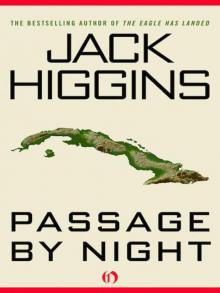 Passage by Night (v5)
Passage by Night (v5)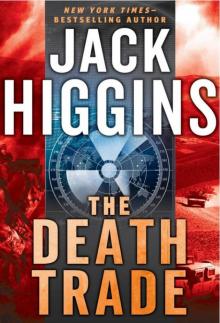 The Death Trade sd-20
The Death Trade sd-20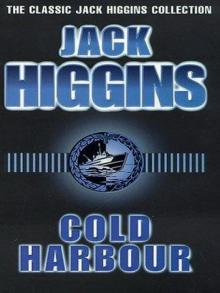 Cold Harbour
Cold Harbour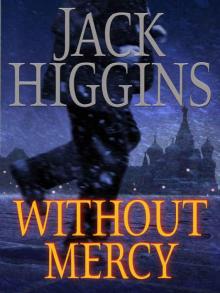 Without Mercy
Without Mercy Solo (Aka the Cretan Lover)(1980)
Solo (Aka the Cretan Lover)(1980) First Strike
First Strike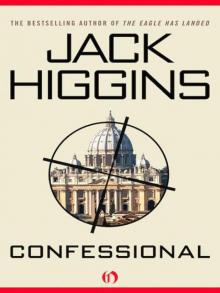 Confessional - Devlin 03 (v5)
Confessional - Devlin 03 (v5)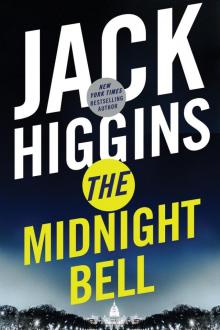 The Midnight Bell
The Midnight Bell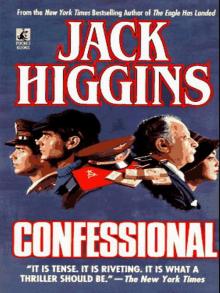 Confessional
Confessional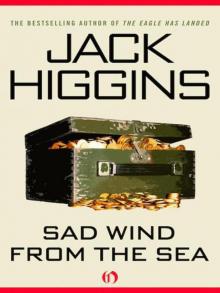 Sad Wind from the Sea (v5)
Sad Wind from the Sea (v5)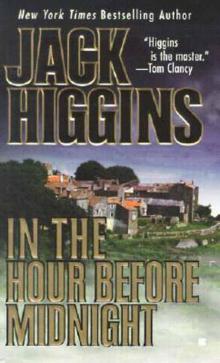 In The Hour Before Midnight aka The Sicilian Heritage
In The Hour Before Midnight aka The Sicilian Heritage Wrath of the Lion
Wrath of the Lion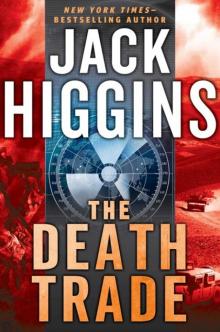 SDillon 20 - The Death Trade
SDillon 20 - The Death Trade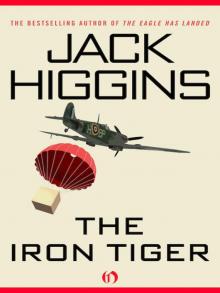 the Iron Tiger (1974)
the Iron Tiger (1974)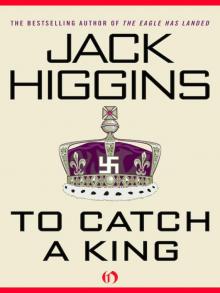 To Catch a King
To Catch a King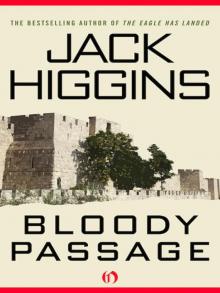 Bloody Passage (1999)
Bloody Passage (1999)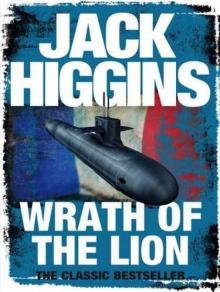 Wrath of the Lion sd-8
Wrath of the Lion sd-8 Sharp Shot
Sharp Shot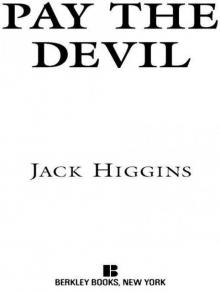 Pay the Devil (v5)
Pay the Devil (v5) A Devil Is Waiting
A Devil Is Waiting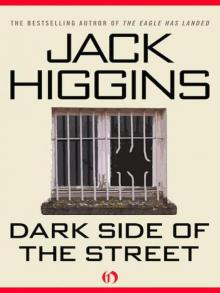 Dark Side of the Street - Simon Vaughn 01 (v5)
Dark Side of the Street - Simon Vaughn 01 (v5)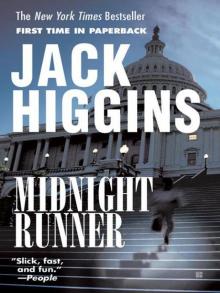 Midnight Runner - Sean Dillon 10
Midnight Runner - Sean Dillon 10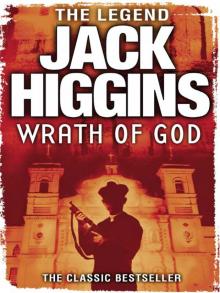 Wrath of God
Wrath of God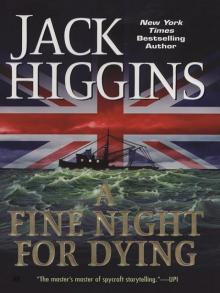 A Fine Night for Dying
A Fine Night for Dying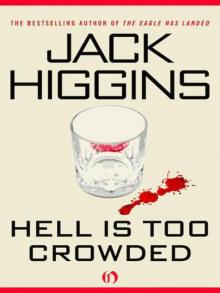 Hell Is Too Crowded v5)
Hell Is Too Crowded v5)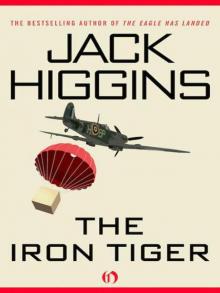 the Iron Tiger (v5)
the Iron Tiger (v5)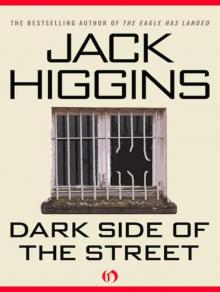 Dark Side of the Street pc-5
Dark Side of the Street pc-5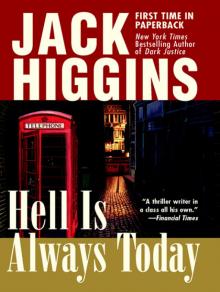 Hell Is Always Today
Hell Is Always Today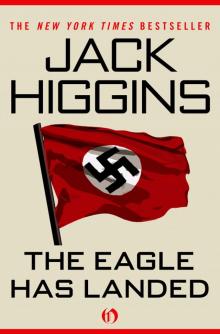 Eagle Has Landed
Eagle Has Landed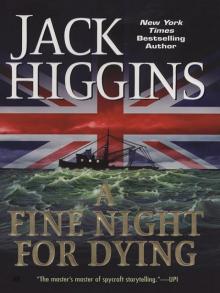 A Fine Night for Dying pc-6
A Fine Night for Dying pc-6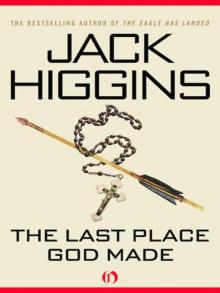 the Last Place God Made (v5)
the Last Place God Made (v5)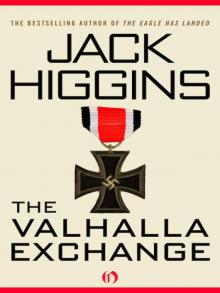 the Valhalla Exchange (1976)
the Valhalla Exchange (1976)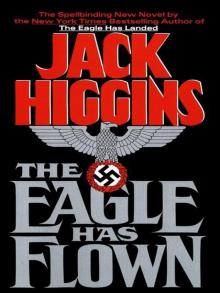 The Eagle Has Flown
The Eagle Has Flown Sure Fire
Sure Fire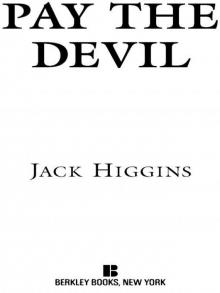 Pay the Devil (1999)
Pay the Devil (1999)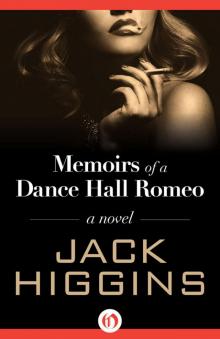 Memoirs of a Dance Hall Romeo
Memoirs of a Dance Hall Romeo![a Prayer for the Dying (1974)[1] Read online](http://i1.bookreadfree.com/i1/04/02/a_prayer_for_the_dying_19741_preview.jpg) a Prayer for the Dying (1974)[1]
a Prayer for the Dying (1974)[1]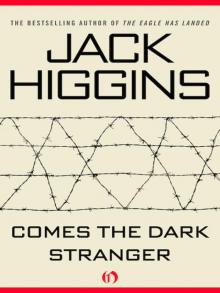 Comes the Dark Stranger
Comes the Dark Stranger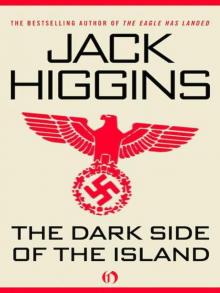 Dark Side Of the Island (v5)
Dark Side Of the Island (v5)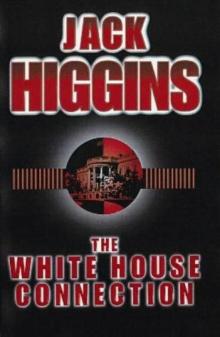 The White House Connection sd-7
The White House Connection sd-7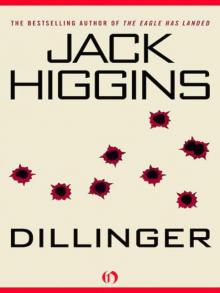 Dillinger (v5)
Dillinger (v5) Eye of the Storm
Eye of the Storm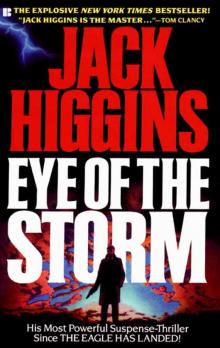 Eye Of The Storm aka Midnight Man
Eye Of The Storm aka Midnight Man A Darker Place
A Darker Place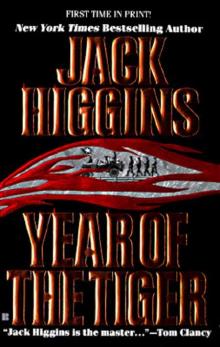 Year Of The Tiger
Year Of The Tiger Death Run
Death Run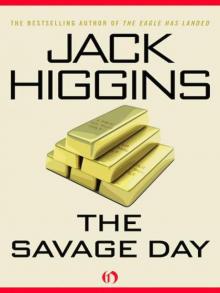 the Savage Day - Simon Vaughn 02 (v5)
the Savage Day - Simon Vaughn 02 (v5)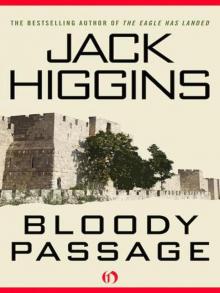 Bloody Passage (v5)
Bloody Passage (v5)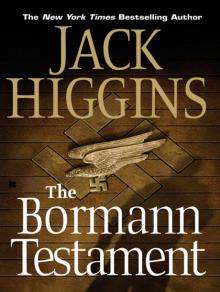 The Bormann Testament
The Bormann Testament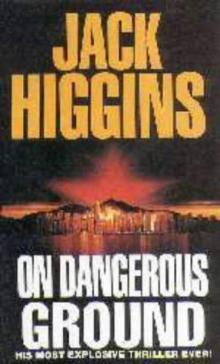 On dangerous ground sd-3
On dangerous ground sd-3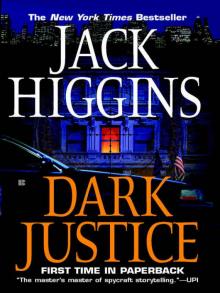 Dark Justice
Dark Justice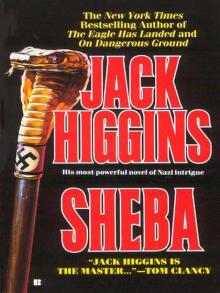 Sheba
Sheba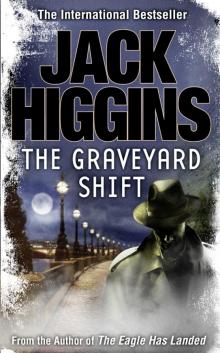 The Graveyard Shift
The Graveyard Shift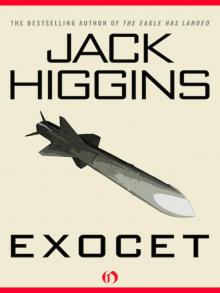 Exocet (1983)
Exocet (1983) The Wolf at the Door
The Wolf at the Door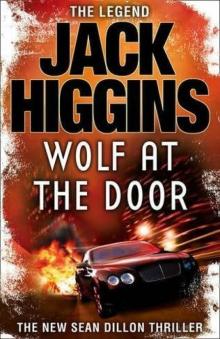 The wolf at the door sd-17
The wolf at the door sd-17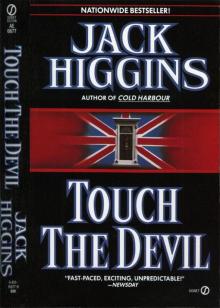 Touch The Devil
Touch The Devil The President’s Daughter
The President’s Daughter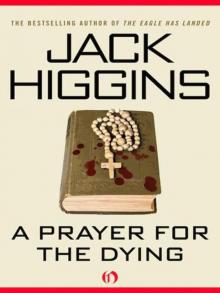 A Prayer for the Dying (v5)
A Prayer for the Dying (v5)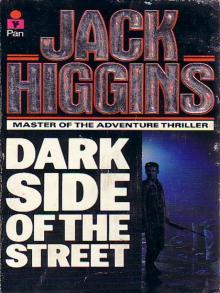 Dark Side Of The Street
Dark Side Of The Street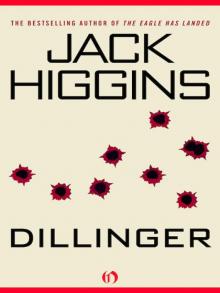 Dillinger (1983)
Dillinger (1983)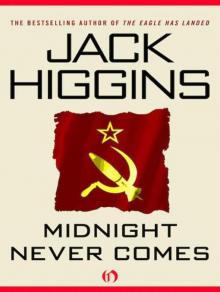 Midnight Never Comes pc-4
Midnight Never Comes pc-4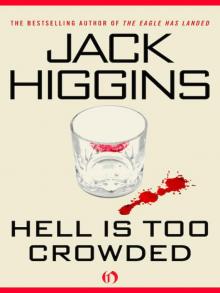 Hell Is Too Crowded (1991)
Hell Is Too Crowded (1991)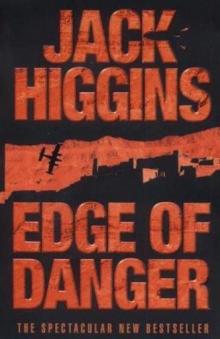 Edge of Danger sd-9
Edge of Danger sd-9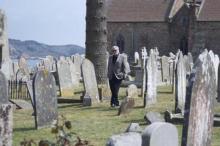 The Thousand Faces of Night (v5)
The Thousand Faces of Night (v5)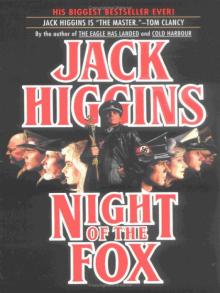 Night Of The Fox
Night Of The Fox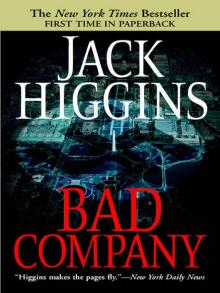 Bad Company
Bad Company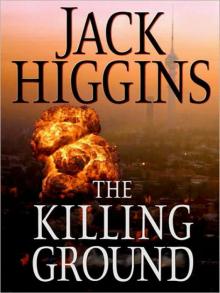 The Killing Ground
The Killing Ground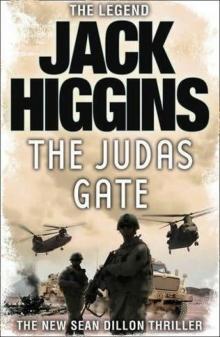 The Judas gate sd-18
The Judas gate sd-18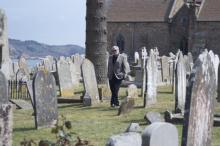 The Thousand Faces of Night (1961)
The Thousand Faces of Night (1961) Solo (Aka the Cretan Lover) (v5)
Solo (Aka the Cretan Lover) (v5)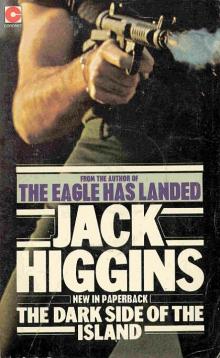 The Dark Side Of The Island
The Dark Side Of The Island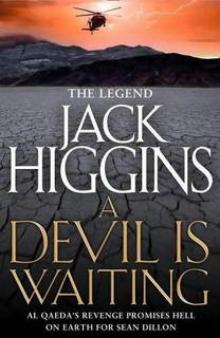 A Devil is vaiting sd-19
A Devil is vaiting sd-19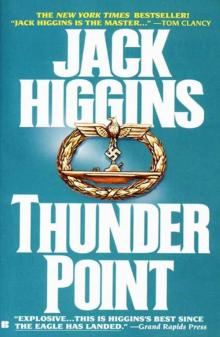 Thunder Point
Thunder Point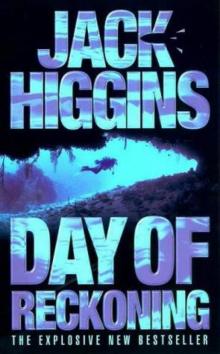 Day of Reckoning sd-8
Day of Reckoning sd-8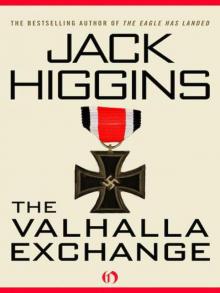 the Valhalla Exchange (v5)
the Valhalla Exchange (v5)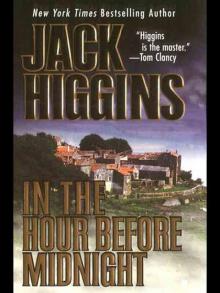 In the Hour Before Midnight
In the Hour Before Midnight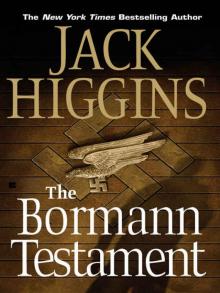 The Bormann Testament (The Testament of Caspar Schultz)
The Bormann Testament (The Testament of Caspar Schultz) The Judas Gate
The Judas Gate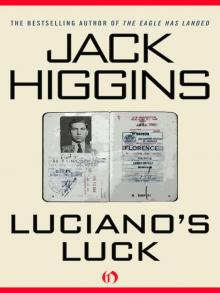 Luciano's Luck
Luciano's Luck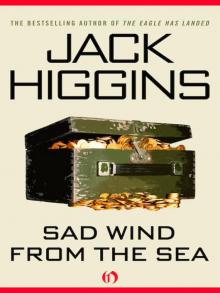 Sad Wind from the Sea (1959)
Sad Wind from the Sea (1959)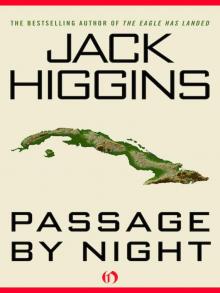 Passage by Night (1987)
Passage by Night (1987)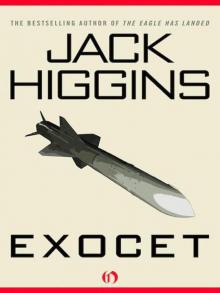 Exocet (v5)
Exocet (v5)